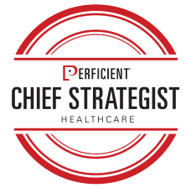The subject of governance often comes up whenever leadership is asked about some of the more critical capabilities that an organization must possess. This is often driven by regulatory and compliance concerns, but as data becomes more essential to business and clinical decisions – as well as the recognition of information, content, and knowledge as an asset – the need for quality, integrity, and timeliness of the information is also driving a recognition of the importance of governance.
In a similar vein, the management and delivery of content and knowledge is critical to consumer experience; to ensuring a harmonized experience across channels.
 The industry, from vendors to advisory services such as Gartner and Forrester, is also contributing to heightened C-suite awareness as it continues to emphasize that truly reliable information can only be obtained through the application of a robust governance program. However, this does not mean that the governance program’s work is done and that there is clear sailing ahead.
The industry, from vendors to advisory services such as Gartner and Forrester, is also contributing to heightened C-suite awareness as it continues to emphasize that truly reliable information can only be obtained through the application of a robust governance program. However, this does not mean that the governance program’s work is done and that there is clear sailing ahead.
Even though there is awareness within executive leadership, misunderstandings still persist. Some of the more common ones include:
- Seeing governance as a one-time project instead of a program or an ongoing operational capability
- Thinking that the implementation of a technological solution will, or should, come with a governance component and therefore it will be taken care of as part of the deployment
- Believing that governance is the problem and responsibility of the IT department so that business involvement is at best that of a requirements provider and not an active participant
An example of these types of misunderstandings was evident at one of the top 15 health systems in the U.S. It implemented MDM to consolidate provider information, but continuous reliability and usability challenges led to frustration for end users and leadership. Realizing a broader overall governance program was needed in order to achieve its goal, this health system asked us to help develop a roadmap for the establishment of a robust information governance program providing the necessary structure, rules, controls, processes, and decision rights for optimizing the management of this critical information.
This program will provide a clear, transparent, and consistent approach to the maintenance and use of the information and create an accurate and trustworthy single source of the truth in order to assist the health system in consolidating key provider information.
A second example was evident at a leading healthcare insurance company. The firm had previously invested in and implemented a broad range of systems to author, manage, and distribute content and knowledge, but because of the duplicative and siloed nature of the systems and operating model, it was unable to manage content in a manner that would support the desired member experience.
We helped to develop a content and knowledge strategy and roadmap to close this gap, along with an organizational and governance framework to facilitate effective decision making, management, visibility, access, controls and integration of content and knowledge to enable the target consumer, member, and provider experiences across disparate channels.
Neither of the above examples are insurmountable, but the onus remains with governance program champions to ensure it obtains the proper support and resources it needs. So, although now a subject in the boardroom, it is critical that leadership understands the program’s value and that the program is positioned to gain the needed sponsorship and championship for ensuring its long-term survival.
This blog was co-authored by Mark Steinbacher and Priyal Patel.
To learn more about the rebirth of governance in healthcare, and exploring the trends and impact on patients and organizational operations, you can download the guide below.

